Mother’s Day is Remembrance Day for Orphaned Adults … and it’s complicated
May 12, 2024
Grief has no timetable, but it commonly acts up on calendar holidays and, for orphaned adults, Mother’s Day is ground zero.

The fact that it falls on a Sunday doesn’t help. By 5 pm on Mother’s Day you may find yourself as needy as a toddler, and only able to remember all the ways she let you down.
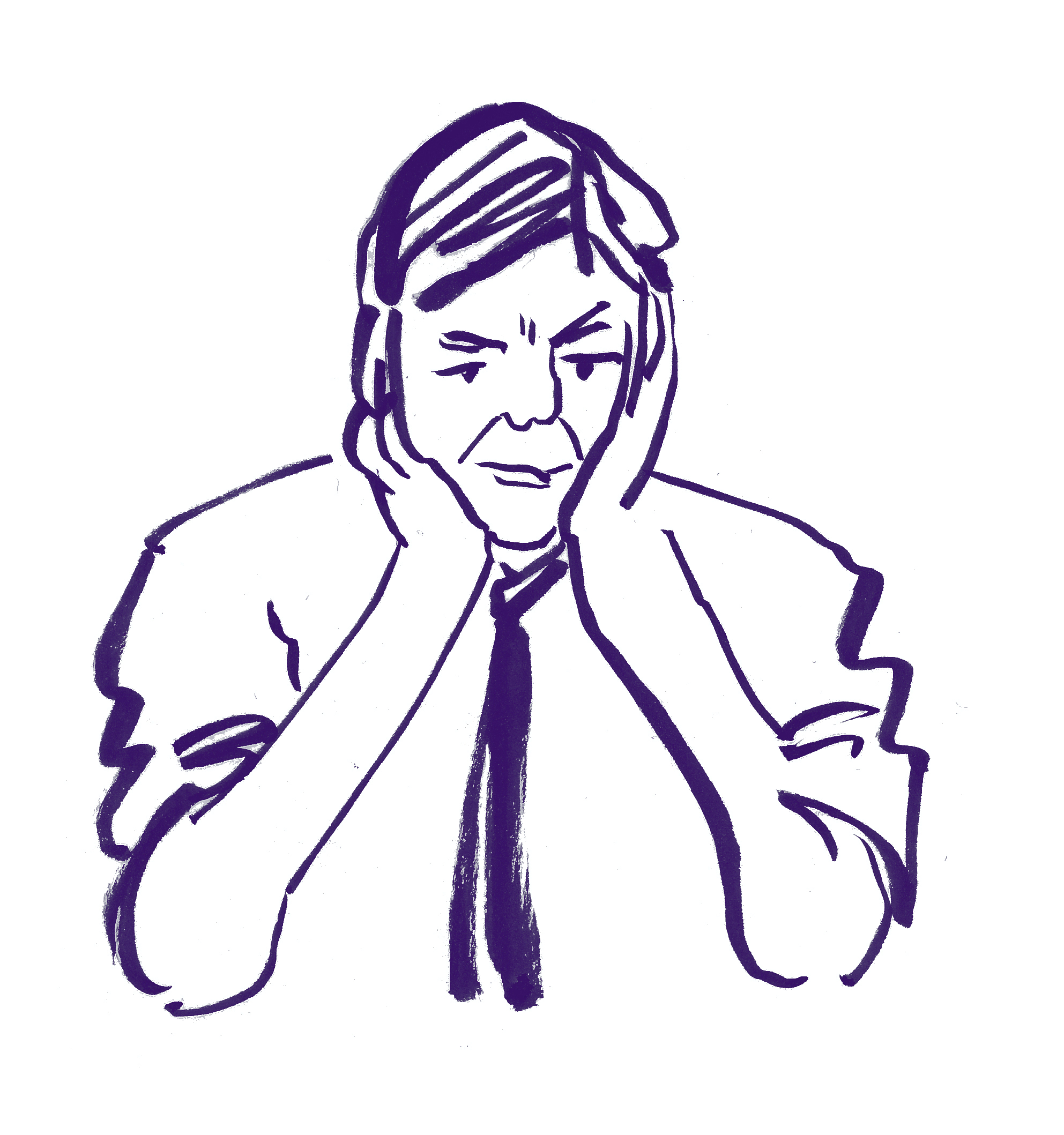
Give her a break, and have a snack.
A recent U.S. Census Bureau study titled “Losing Our Parents” showed that by 2021, at the height of Covid, over a quarter of the U.S. population (26.4%), and most of them between the ages of 50-54, had reached the stage where they were parentless.
There are no equivalent Canadian statistics, but Gen X’ers in this country are facing a similar life passage, I am a part of this pack crossing death valley. My parents died in 2011 and 2012. And after long bouts of staring into space …

I turned to drawing to ease my grief and add back some wonder in my life (art supplies … try them).
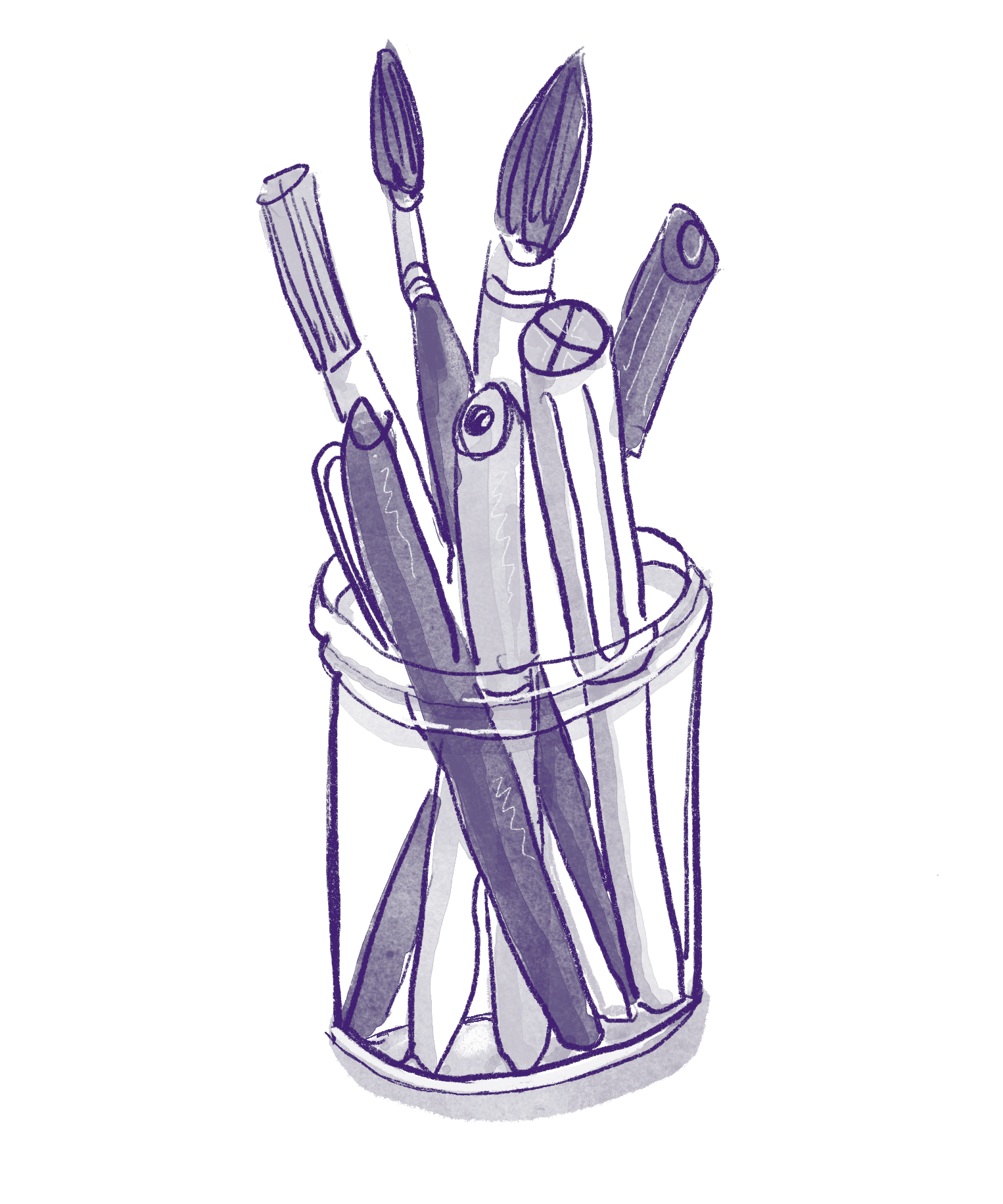
Before long, I noticed I was making fictional portraits of people, some of whom I later realized were showing definite signs of unresolved grief. I drew chain smokers and pity partiers, loners and addicts, rivals and narcissists. “Assume everyone is grieving,” Amy Sedaris advised me one afternoon while reading New York magazine. I believed her.

Soon, dog moms and earth angels also started to appear in my sketchbooks, alongside helpers, creatives, and enlightened beings of all shapes and sizes.
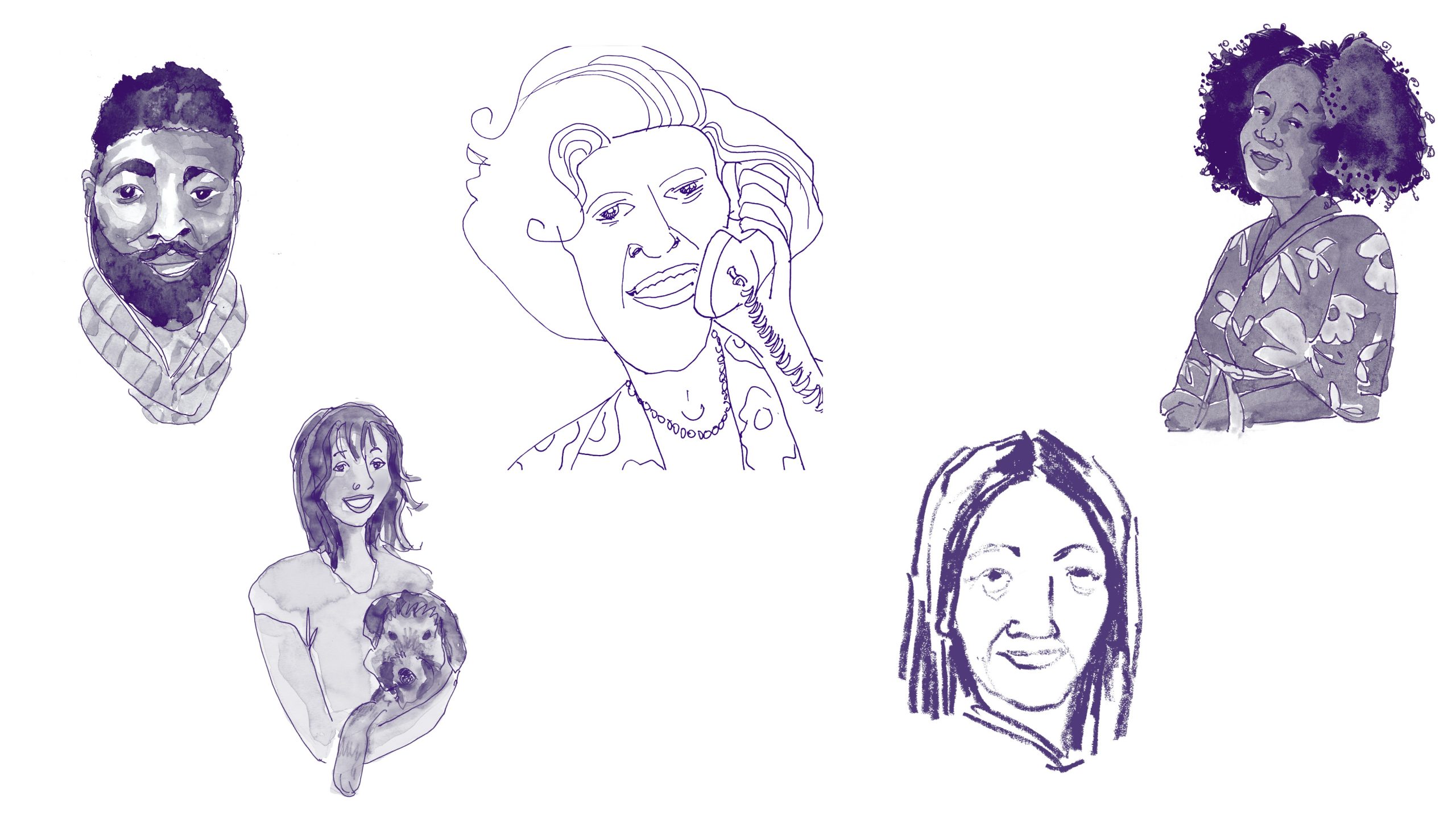
I started calling these characters, “The Stagers of Grief,” a play on Elisabeth Kübler-Ross’s “five stages of grief.” When I discovered that “stager” was a word used in Shakespeare’s time to describe a veteran actor with the most real world experience with loss, it was as if I’d been hit with a chunk of manna.
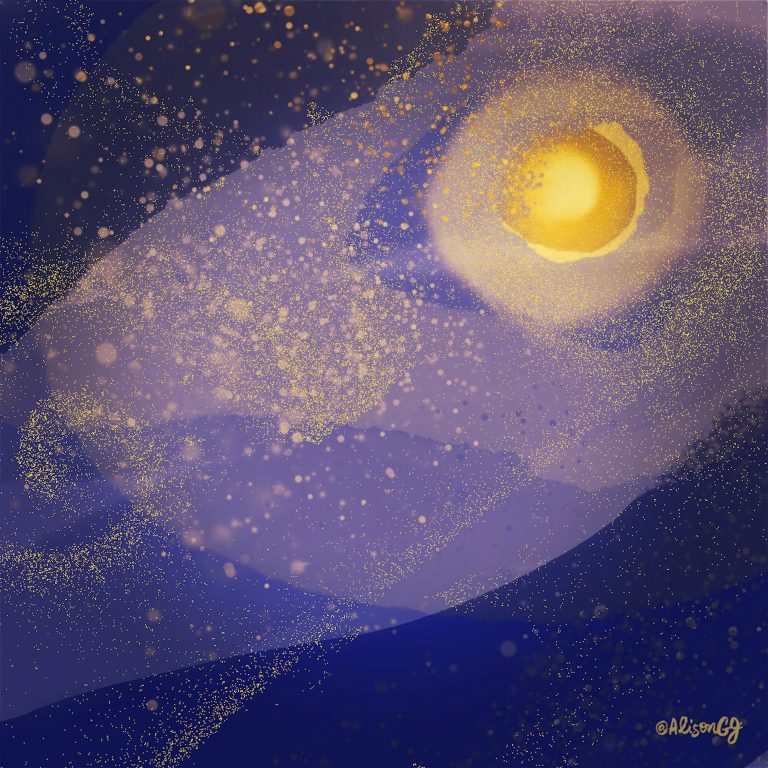
During the pandemic, I began arranging my sketches into a book I was calling, I MISS MY MOMMY. I dubbed it “the world’s first picture book for big people without parents,” in part, because I wondered if the authoritarians marching across the world stage had ever been hugged or read to as kids? (Some people shout when they get mad. I turn into an armchair psychologist).
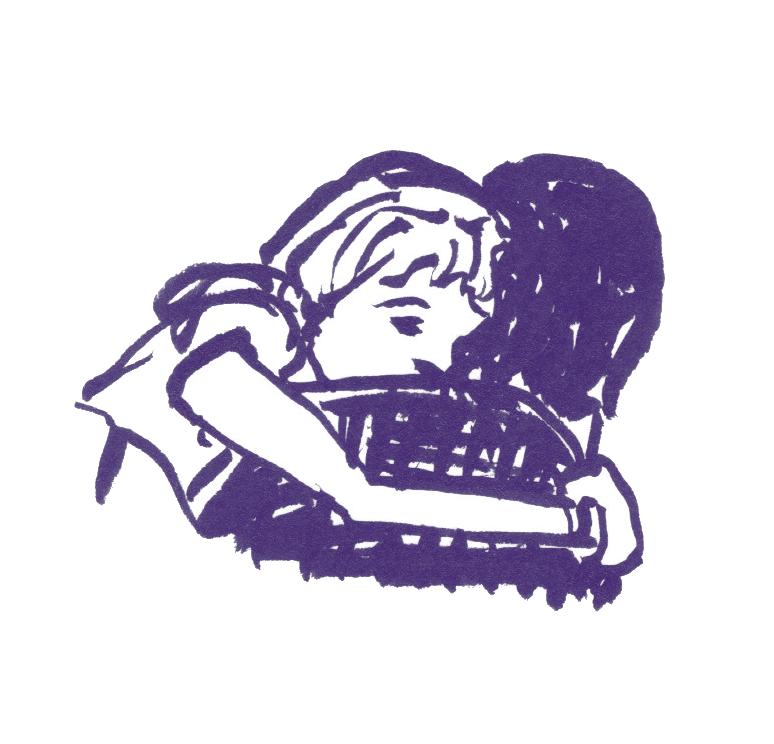
This is the book, you’ve seen it in my feeds, and it’s full of stories of people you know. My hope is that if you’re struggling with loss, my drawings will help you find a way to sit with emotions you’ve been avoiding, but can’t stop feeling.

I MISS MY MOMMY is now available for pre-order at PenJarProductions.com.
As a thank you to those who place a Pre- Order, I will email you a FREE chapter!
This past March, with a Mother’s Day book launch in mind, I created and released a survey on social media where I asked other “death valley hikers” to share how they viewed and responded to Mother’s Day, now that she’s gone.
Within a week, 40 people took an average of 14 minutes to answer 12 mini essay questions* I asked them about their late mothers. Compared to a Statistic Canada or Gallup poll, this is a small sample size. But it’s still something. (*From my Survey Monkey stats)
One respondent (#31) told me they were taking the survey on the same day their spouse’s mother had died.
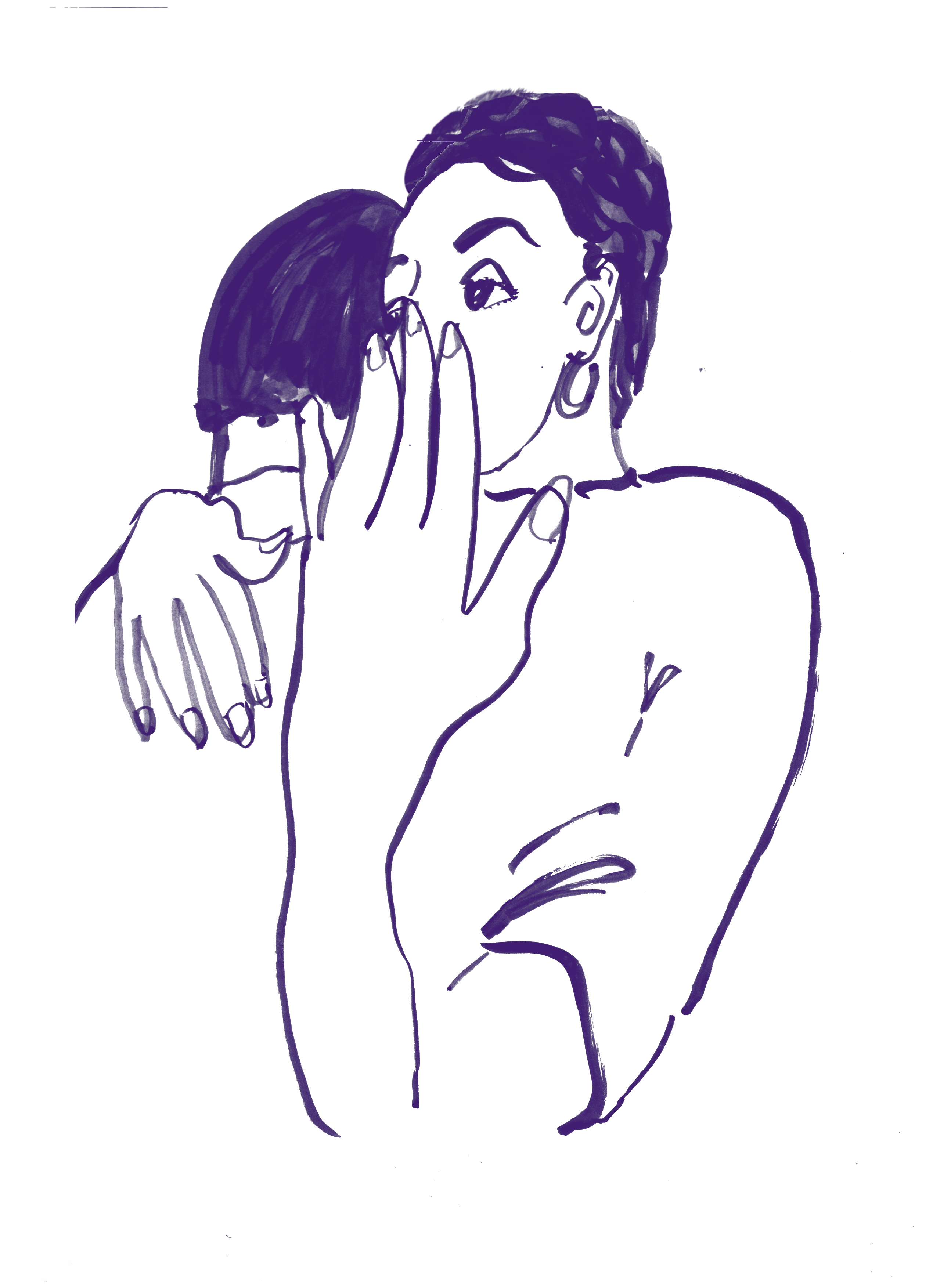 Another DM’d me on Instagram to double check that their answers would be anonymous. After I said yes, they rushed to let me know that a family secret that had come to light only after their mother’s death finally explained their fraught relationship with her. I had to guess where that secret was in the results.
Another DM’d me on Instagram to double check that their answers would be anonymous. After I said yes, they rushed to let me know that a family secret that had come to light only after their mother’s death finally explained their fraught relationship with her. I had to guess where that secret was in the results.
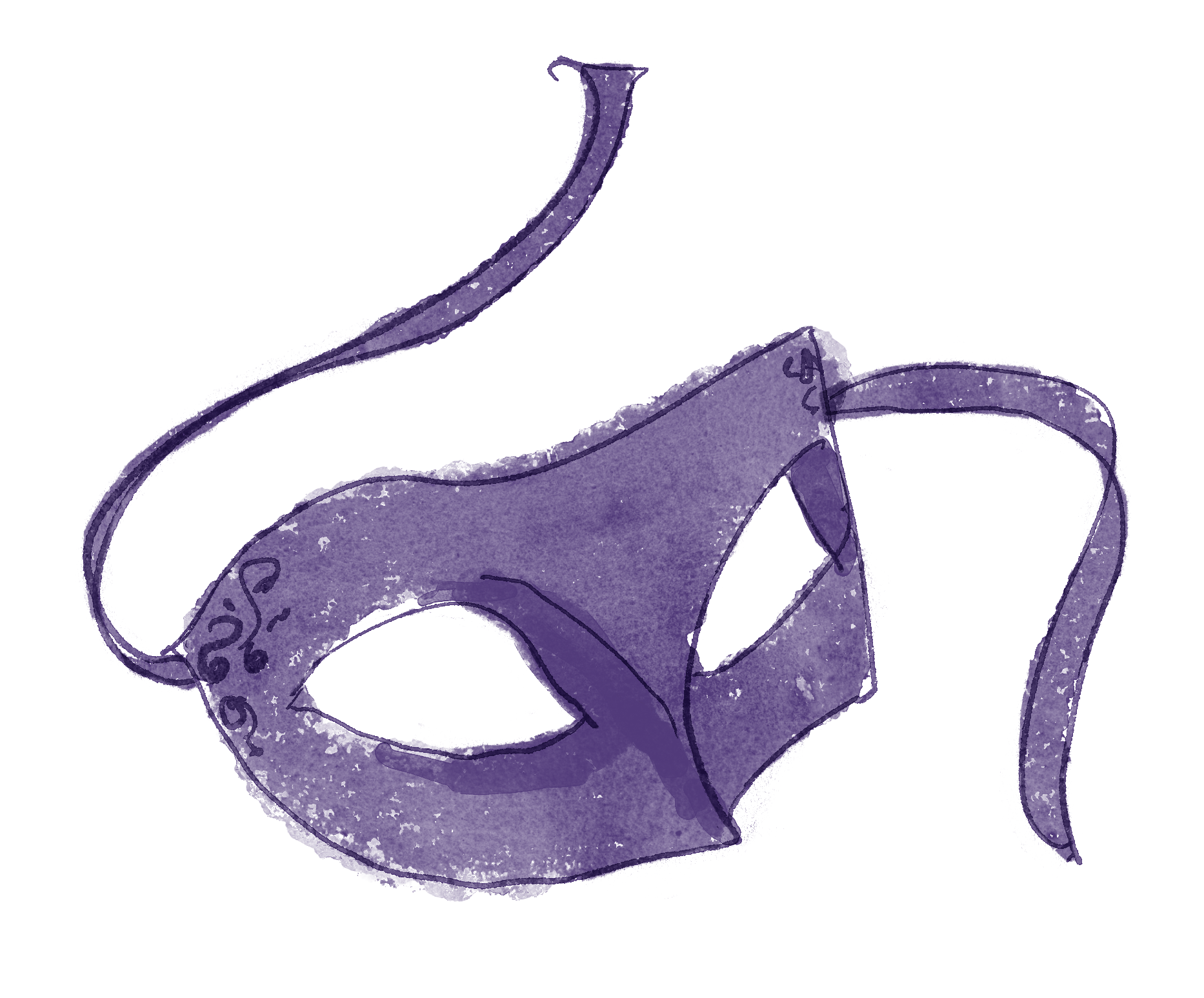
Clearly, my survey had lit the wick of an emotional bomb.
Are The Kids All Right? – Survey Results
Here’s what you told me.
You were relieved to have permission to talk anonymously about your take on the saintly hype around Mother’s Day, and how it doesn’t always square with the memories of the real woman who raised you. (More on that in a minute).
Overall, I found that the “June Cleaver mom” was alive and well in many of your childhoods in the 1970s and eighties.
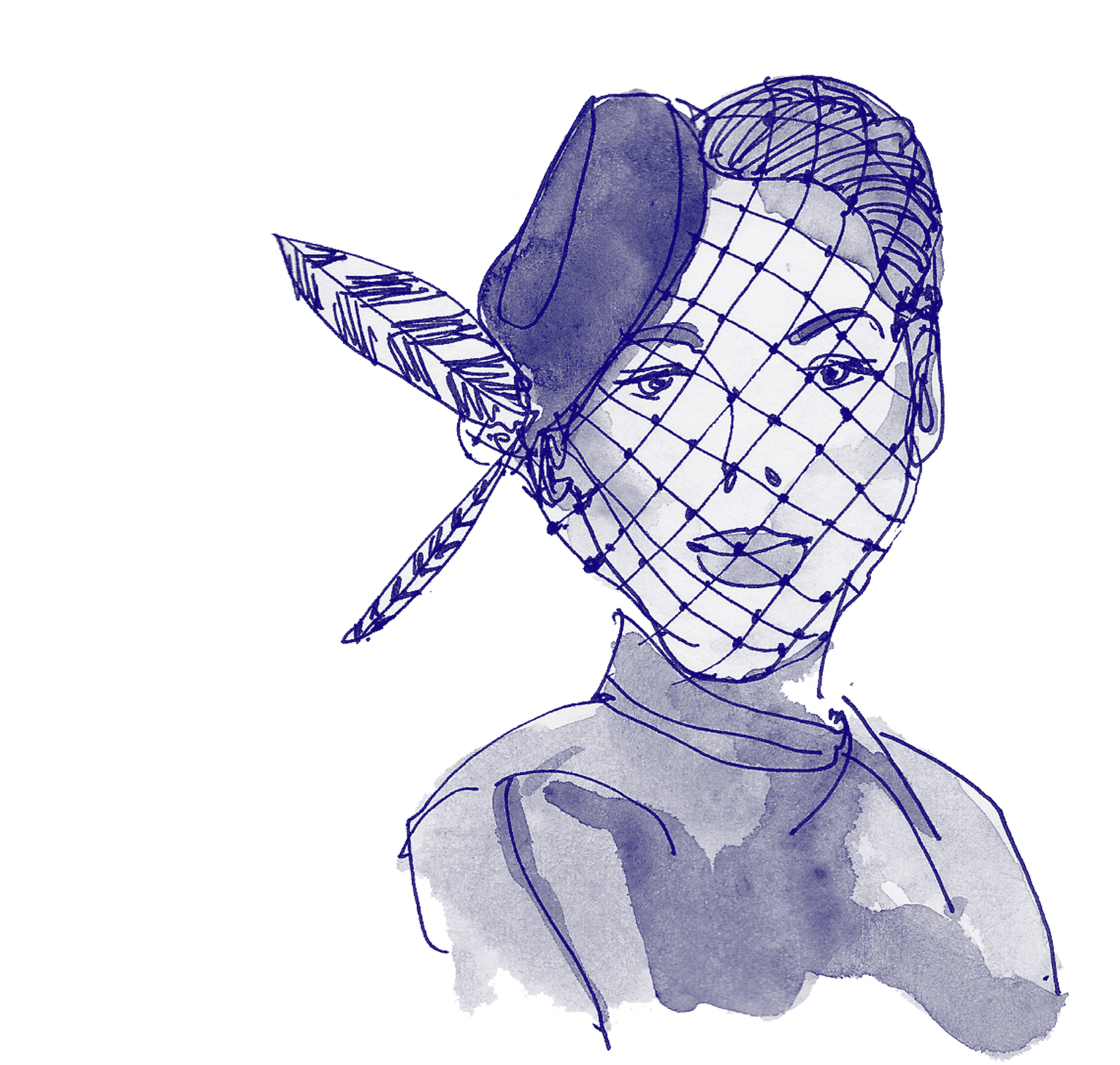
A number of you shared memories of high teas and homemade cards of your handprints that you later found tucked inside drawers or family bibles. There were also a lot of last-minute supermarket flower bouquets.
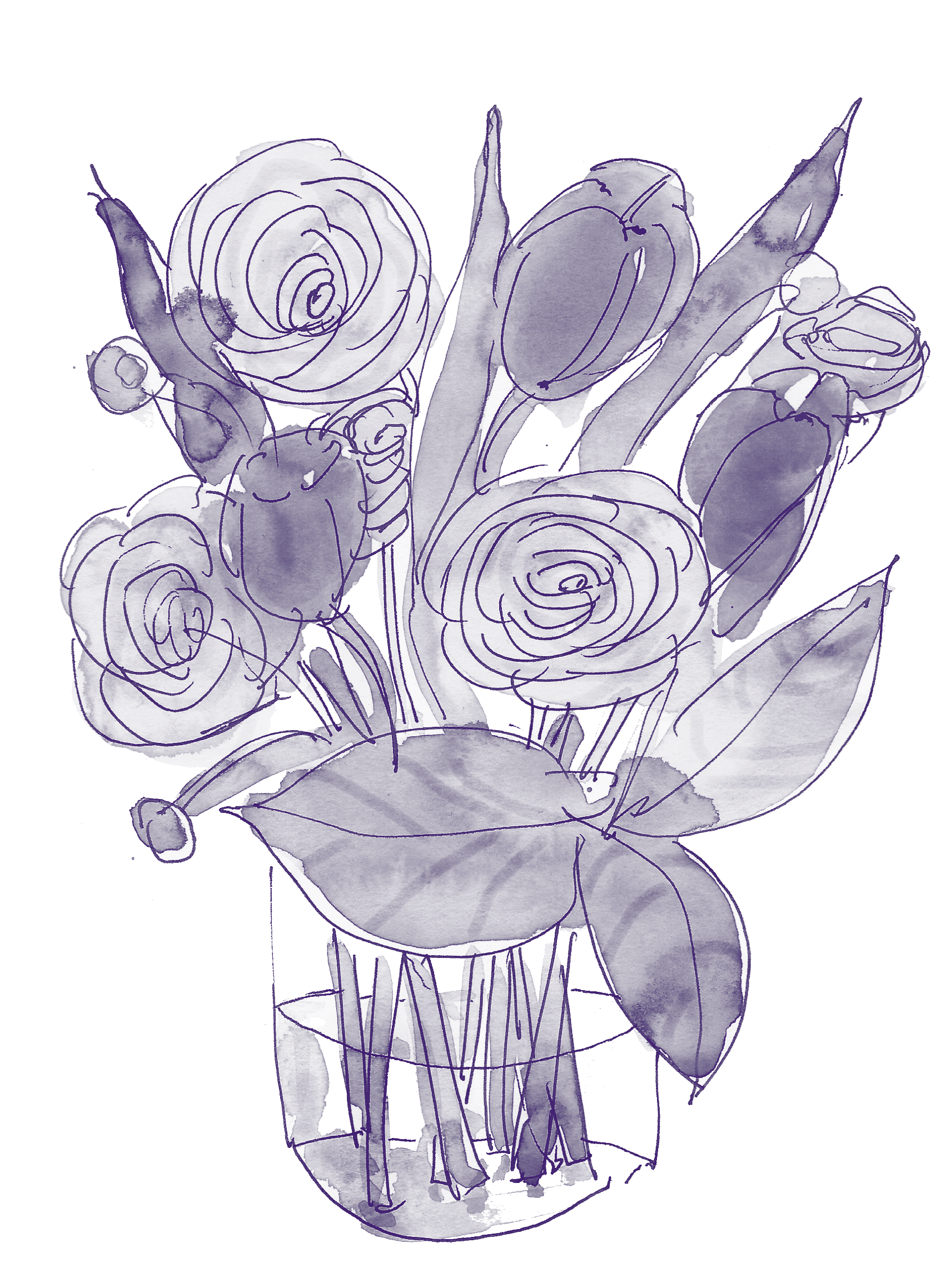
Other survey takers cited their late mother’s joyful embrace of spring, which is now your joyful embrace of spring.

One of you said, your mom’s selfless acts of love (or duty) were so insistent that she refused to take the day off. “Mom saw herself as the de facto host every Mother’s Day, cooking, baking and receiving guests that she had invited so as to give her mother-in-law a lovely day,” said survey respondent #38.
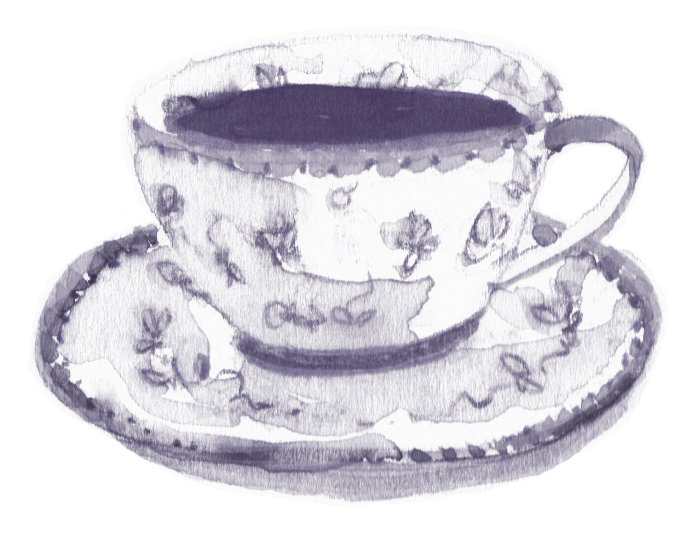
Other mothers got a break. A total of eight were treated to brunch on Mother’s Day, three got breakfast in bed, and another four were relieved of dinner duty, at some point in the past.
Also very present in the survey was the “Moira Rose mom,” wailing about her life and her career setbacks from the bottom of her closet (that’s my embellishment). This mom has always existed, but, until recently, she was never mentioned in the “Madonna and child” marketing campaigns for Mother’s Day.

But all that changed at turn of the 21st century. In the early 2000s, I remember noticing, for the first time, a shift in tone in the greeting card aisle, and the introduction of a more raw, realistic portrait of motherhood. My tribe of Gen X’ers were the first to witness this change from the saintly to the profane while their mothers were still alive.
The best examples are the shoutouts from the Em & Friends card company, which specializes in being direct. Here’s a card that slaps mom on the back and tells her what “a fucking great job” she’s doing.

Another card thanks mom for teaching us kids how to “swing a hammer” at the glass ceiling.

And, as soon as women’s magazines started to discuss the unfairness of the second shift existence for working moms, in true call and response fashion, so did the greeting cards: “Mom, you work so hard and if you ran away to a tropical island forever I would understand” (also from the Em & Friends collection).
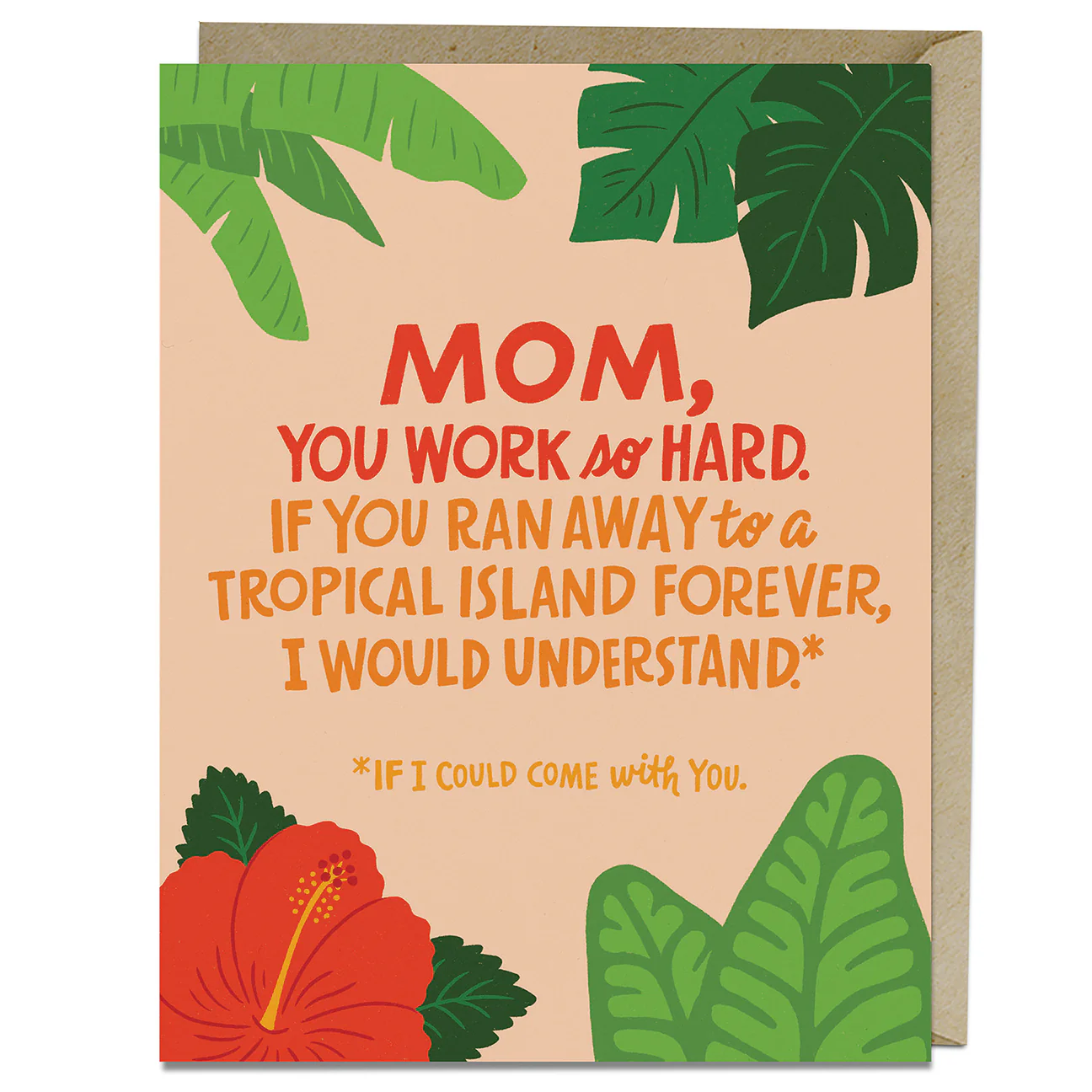
The elephant in the room …
Take a seat. Now we need to talk about the alcohol-laced Mother’s Day cards, whose tone hovers between hilarious commiseration and intervention.
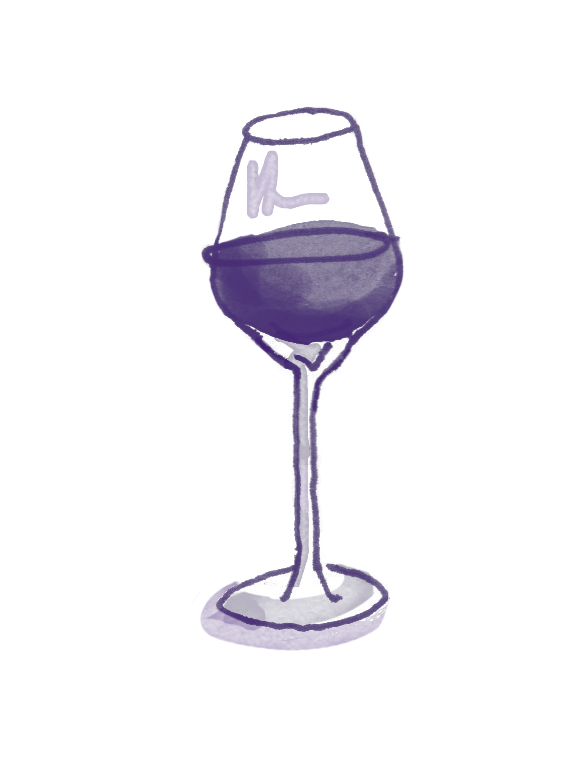 This category began to take off as society became brave enough to acknowledge the elephant in so many living rooms and kitchens. It also took off because wine producers and marketing departments discovered that women, especially stressed out working mothers, were an untapped audience segment with a ton of buying power. To wit:
This category began to take off as society became brave enough to acknowledge the elephant in so many living rooms and kitchens. It also took off because wine producers and marketing departments discovered that women, especially stressed out working mothers, were an untapped audience segment with a ton of buying power. To wit:
From Funky Pigeon: “Mom, I found your glasses” (wine glasses, that is).
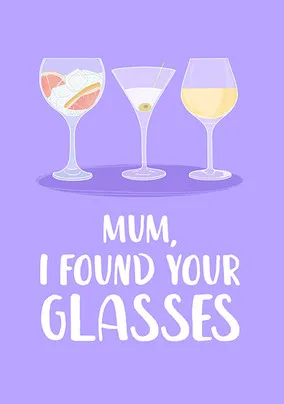
This shameless example by Twizler — from their “Funny Mother’s Day Cards For Mom” category — claims, “There’s only one way to get wine out of the carpet.” Cut to the illustration of mom on her hands and knees sucking spilled wine out of the carpet, followed by an ironic “Happy Mother’s Day”.
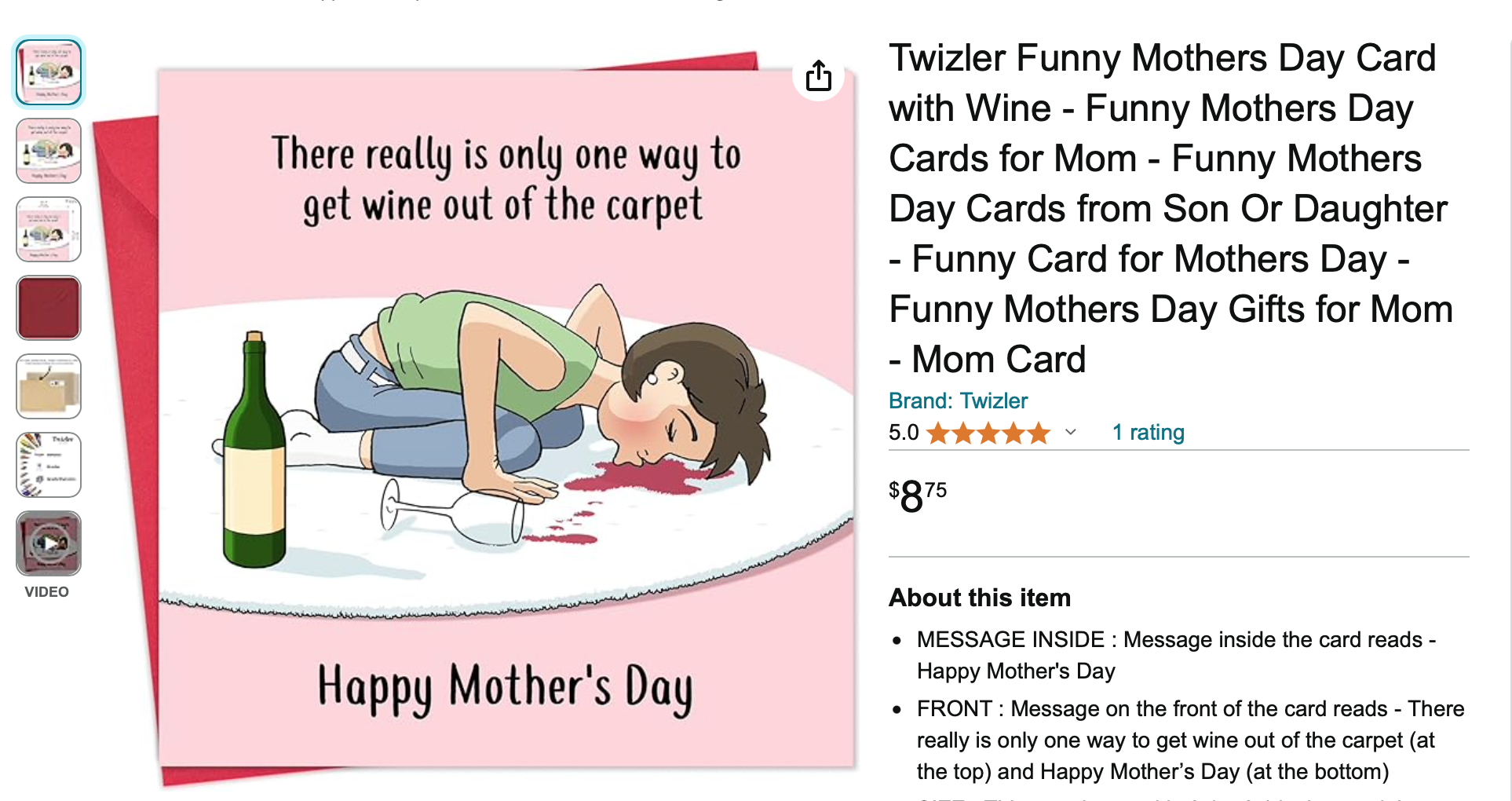
Apparently, we love sick jokes. But for several respondents of my survey, this was no joke.
One described how their mother’s alcohol and prescription dependence dominated their lives (#21).
Another said Mother’s Day reminds them of all the times they “begged her to stop drinking. She laughed.” (#5)
A third was more gentle, “She was depressed. I was a teen and didn’t see it.” (#19)
Not fit to be a mother
For all the grown children whose moms couldn’t or wouldn’t mother, guess what? There’s a Mother’s Day card for that too: “Today let’s celebrate the job you did at basically raising yourself,” reads another example from the Em & Friends collection.
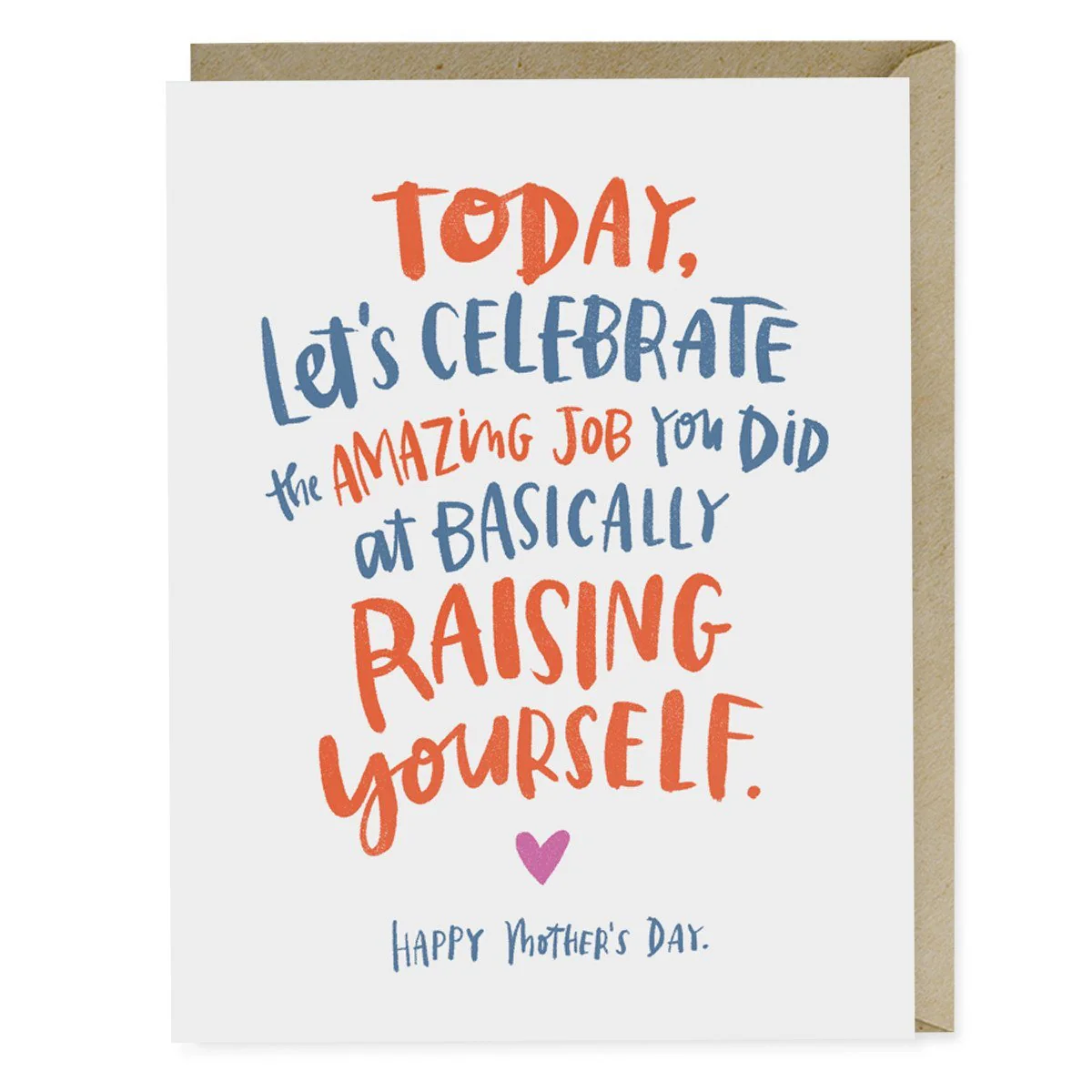
How She Died
Perhaps the toughest aspect of Mother’s Day for orphaned adults are the persistent memories of how she died:
“We gave her liquid morphine as she lay on her hospice bed in my parents bedroom, and listened to her death rattle on the baby monitor,” wrote respondent #13.
Another (#4) shared a memory, saying, “The day in the hospital watching her in cardiac arrest, and later passing, was the worst day and memory of my life. She did absolutely everything for everyone. I hated to see her suffer in the end.”
My mother had Alzheimer’s and was in a hospital bed for ten years, so this next one hit hard: “She had dementia, choked on food, and ended up aspirating and had to be rushed to the emergency. She was so scared, and didn’t understand what was going on. That was the end of her journey,” said respondent #23.

Your reaction to Mother’s Day now
I followed up by asking how all of you were reacting to Mother’s Day since her death.
“I avoid it” was the most common response. That meant: no social media, no visits to restaurants or garden centres, and definitely no Sunday drives to sit in front of your childhood home.
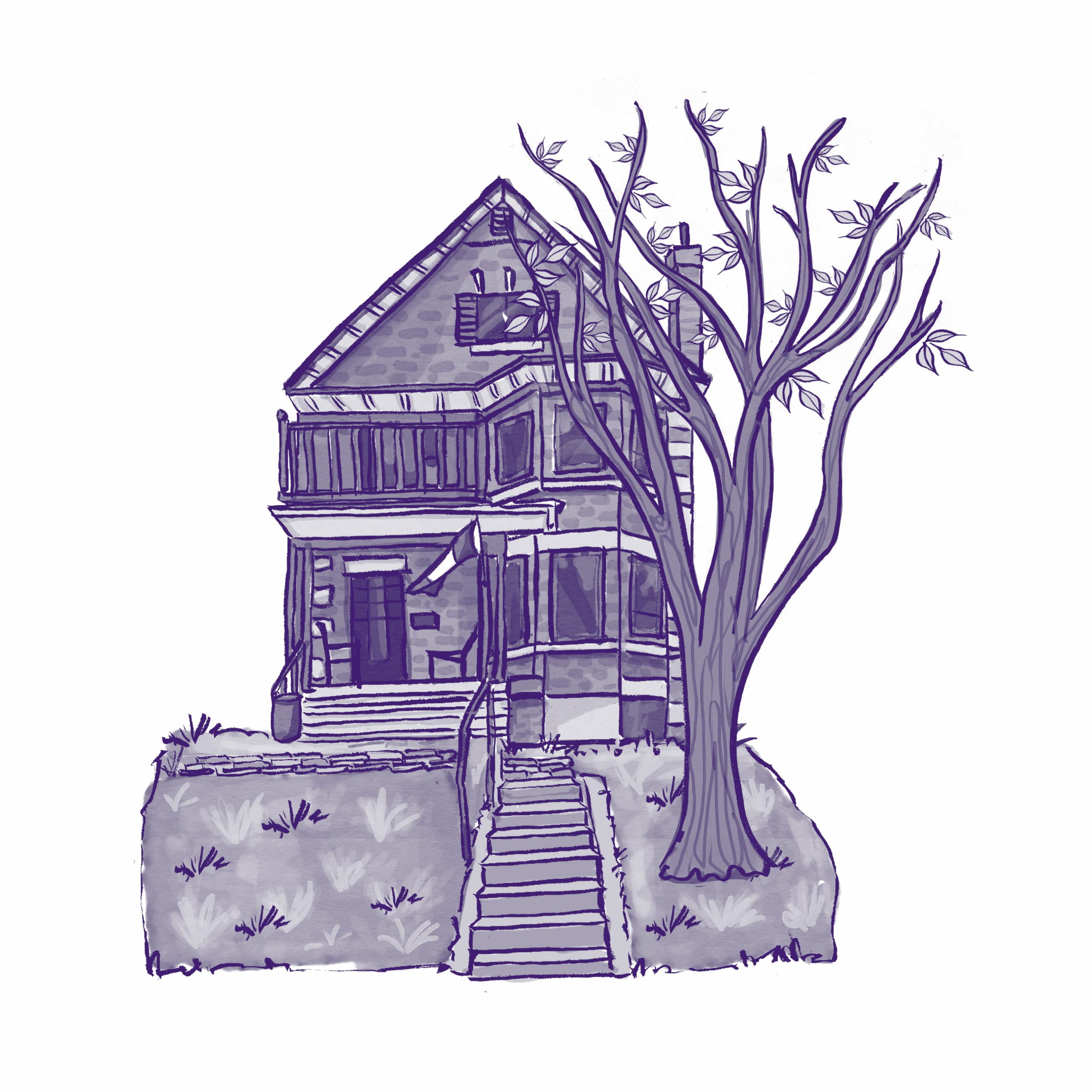
One respondent (#5) admitted to trying worship, but they were “not wild about seeing others celebrating with their mothers at church.”
Word Cloud
Common words and phrases you used to describe Mother’s Day included:
“Dread”
“Void” – “the day has no meaning anymore.”
“Indifferent”
“Empty”
“Grief day”
One of you described a scene and a ritual you came up with to combat your mother’s absence on this day:
“I write her letters of things I never said, of the things going on in my life, of things I wish I could tell her about, questions to ask. I always rip them up at her grave and leave them in the dirt. It makes me feel like she’ll get them and no one else will.” (#18)
A number of you said, “I just cocoon on Mother’s Day.’
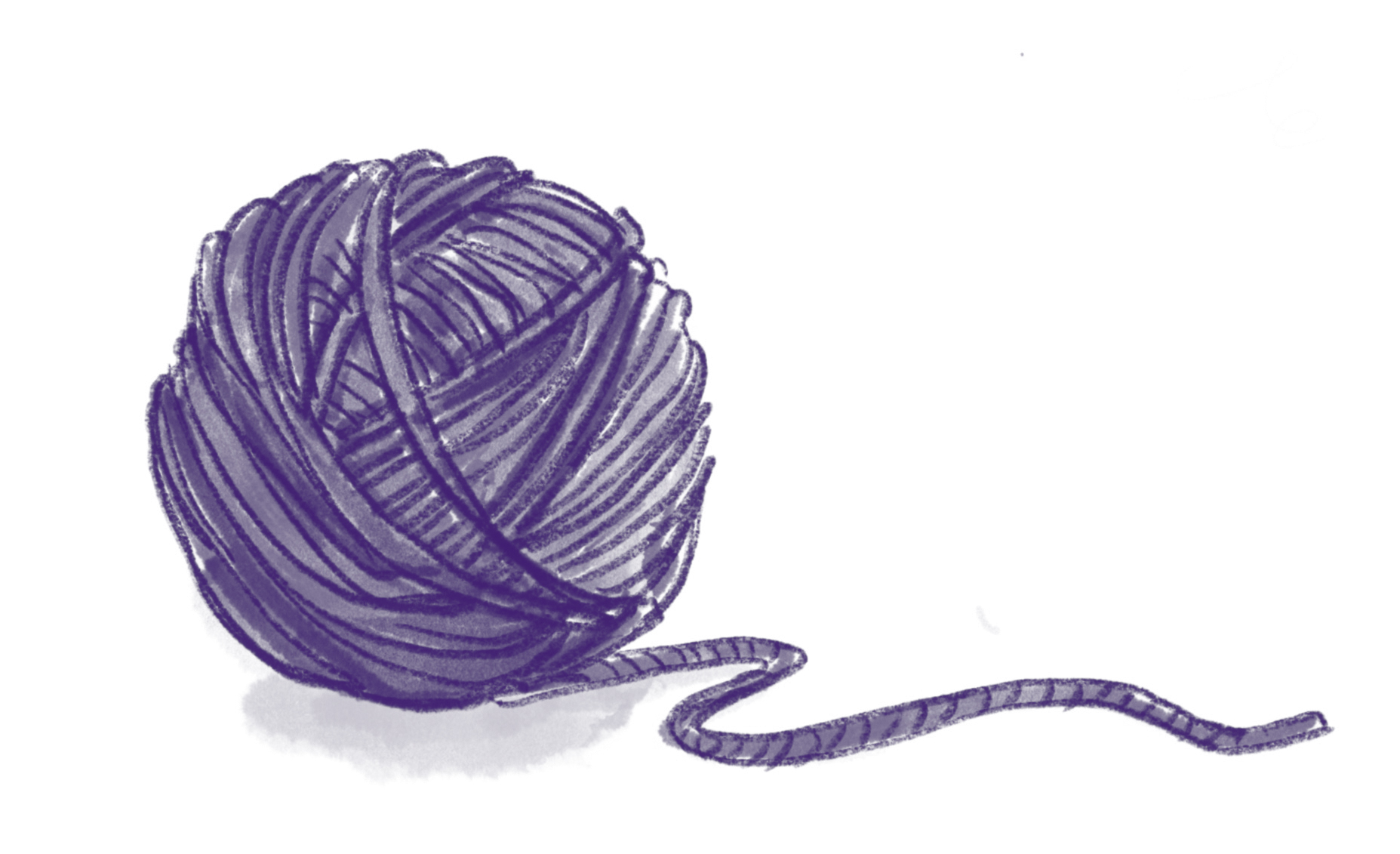
“After the first five or six years, I stopped visiting her at the cemetery on Mother’s Day,” said respondent #8. Instead, a lot of you spend the day reading, napping, looking at photo albums. Several cook their mother’s favourite meal, or listen to her favourite music.

One of you even rewatches the “celebration of life” slideshow your family created for her funeral. (#6).
Some of you enjoy calls or visits from siblings. Others don’t: “My sister always calls to talk. And that’s not how I want to deal with it,” said respondent #15
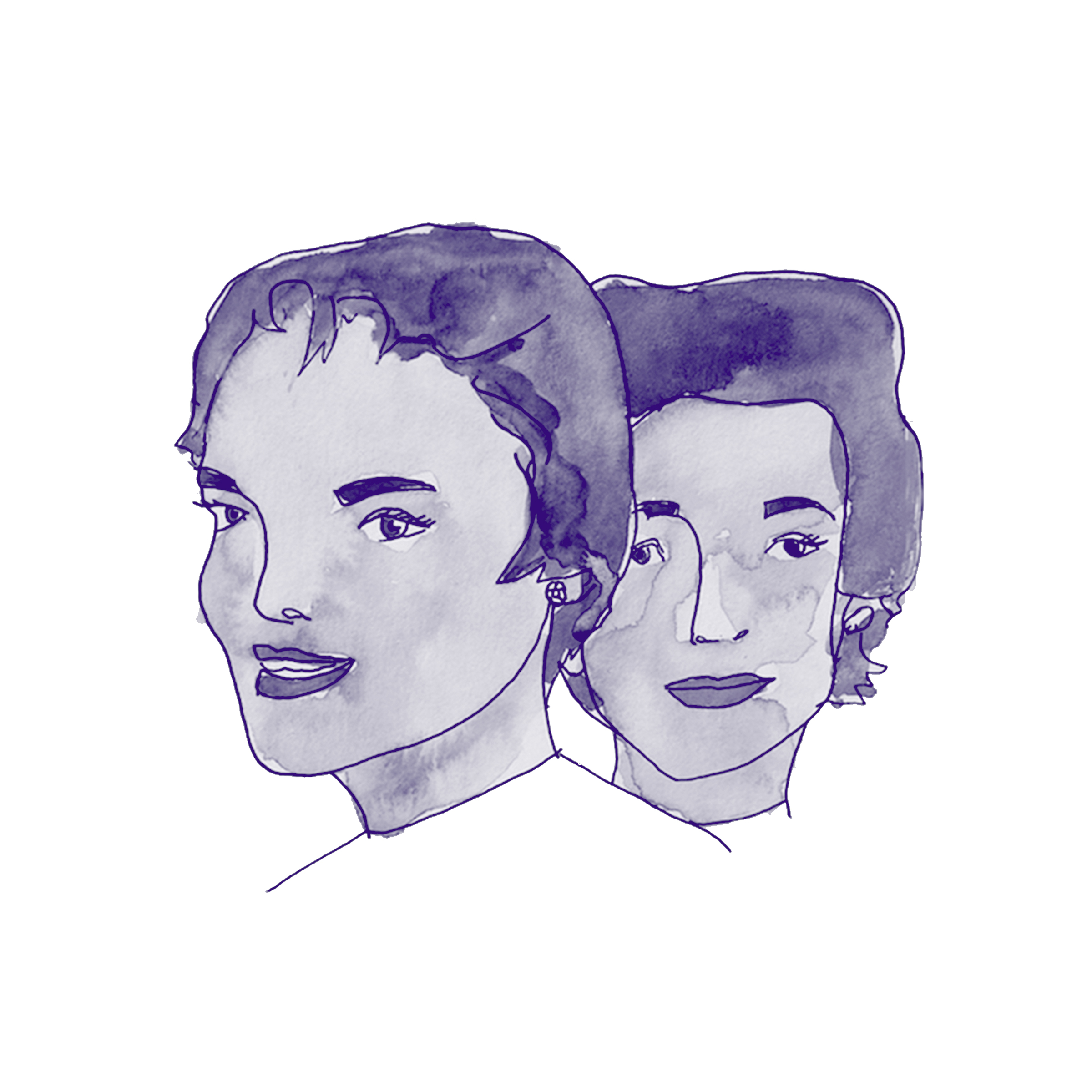
A number of you cited holding regular conversations with your mothers. Laughter was a prominent theme and balm. I can relate.
 “She didn’t always laugh,” said one respondent, “but when she did, it made my heart happy. She had a lot of darkness in her life.”(#4).
“She didn’t always laugh,” said one respondent, “but when she did, it made my heart happy. She had a lot of darkness in her life.”(#4).
”She sounded like a “honking goose,” said another (#26).
A third loved how “she would laugh so hard she would snort! It was the best thing ever!”`” (#28)
Even people who had a tough relationship with their mothers cited their ability to make each other split their sides: “I miss laughing with you.” (#5).
PS: She felt the same way
One respondent (#23) remembers that while they were finding things to do to celebrate their mom on Mother’s Day, she spent her quiet moments missing her own mother:
“My mom used to say how much she missed her own mom around Mother’s Day, and now I can totally relate. I’m having the same or similar feelings when Mother’s Day comes around.”
Consider this: a sense of camaraderie with your deceased parent’s feelings of being orphaned can ease some of the sting of grief today.
A softness takes over
I’ve found that with age comes a certain softness, even a lightness. In my book, I Miss My Mommy, I write that, in the throes of grief, “I developed a childlike receptiveness to a gentle word or quiet act of generosity.” You agreed with this:
“Mom did the best she could,” concluded respondents #10 and #21.
“I forgive you,” wrote respondent #29.
When remembering the past, ego can blind us to own own inconsistencies and mistakes. With time and experience, perhaps your lingering sense of injury will lift and you’ll understand your mom and dad were navigating the same challenges you’re now facing. I’m guessing you’re handling things with equally mixed results.
That’s what your parents meant when they said: “Someday you’ll understand.” So raise a glass to mom (and dad) today.

In my final survey question, I asked, “What message would you like to share with your mother on Mother’s Day, if you could?” This one stood out:
“Come back.”








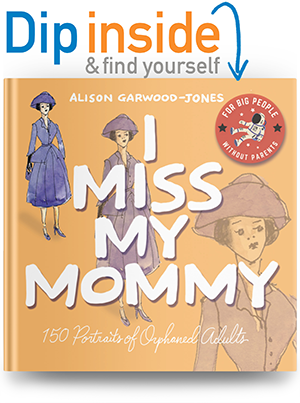

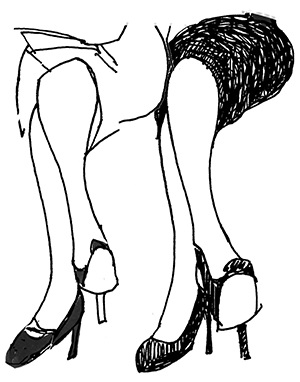
















Leave a Reply